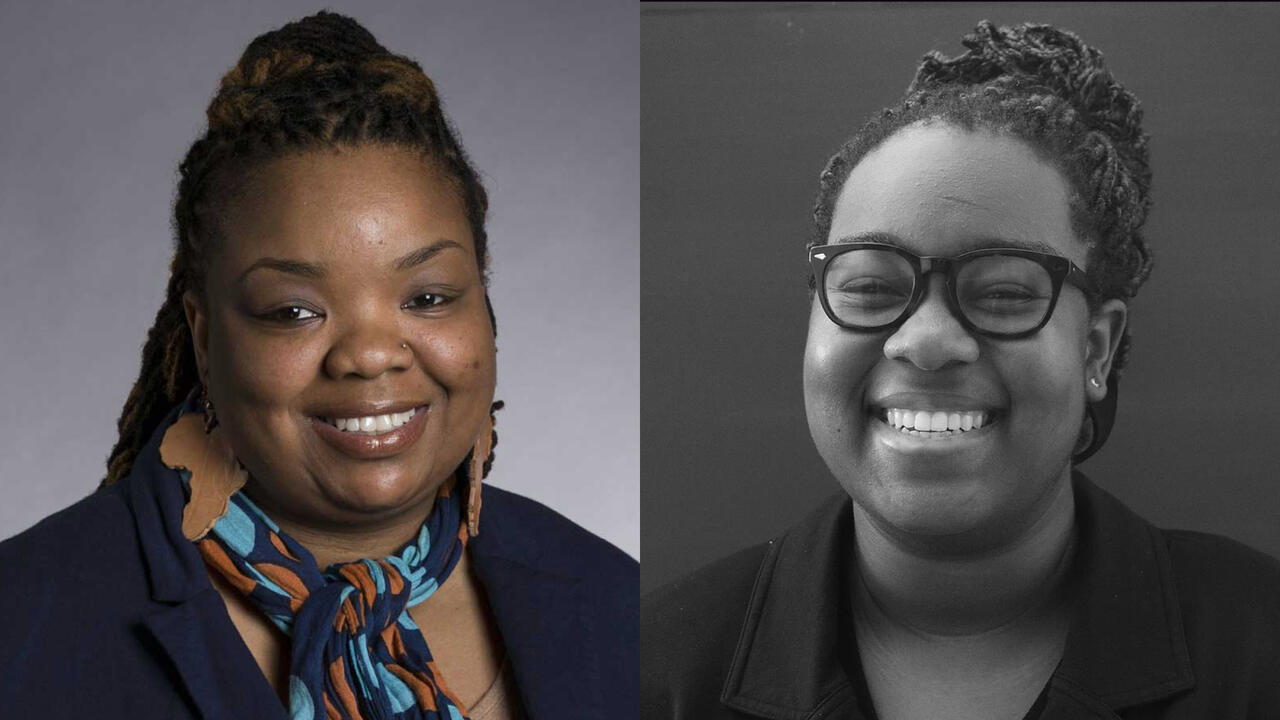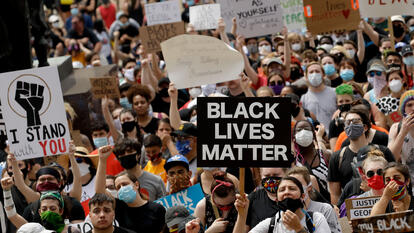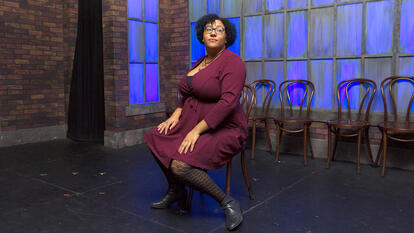
Research with Mentor at Wellesley Centers for Women Gives Student New Perspective on Black Scholarship
Vei Vei Thomas ’21 works as a student research assistant to LaShawnda Lindsay, a research scientist at Wellesley Centers for Women. Together, they have studied a variety of topics related to Black women and girls. We talked to Thomas, a Peace and Justice Studies major, about her experience working with Lindsay (whom she calls Dr. LL) and how it has shaped her future goals.
How did you meet LaShawnda Lindsay?
Vei Vei Thomas: In early September 2017, I went on a first-year retreat in Boston with Harambee House. We stopped at a place called Black Market, where a number of Black entrepreneurs and artists were selling various items they made. In addition to being a wonderful researcher and teacher, Dr. LL is an artist, and she was there selling her handmade jewelry. We started talking, and she was nice and welcoming and jovial. Months later, she reached out to me to ask if I was interested in applying to become her research assistant, and I responded immediately. To me, it reaffirmed how people in communities that are not always afforded opportunities look out for each other. I barely knew Dr. LL, but she was kind to me and gave me a chance.
What kinds of work have you done together?
Thomas: I’ve done interviewing, transcription, and qualitative coding, worked on a paper that we’re planning to submit, and presented at a seminar on topics our research covers. In terms of research topics, the first thing I worked on with Dr. LL was interviewing authors who had written about or whose research exemplified and was related to “othermothering,” which is this idea that there is a strong sense of familiarity—like motherhood or sisterhood—among Black women and girls that ties them together so that they feel responsible for the betterment of each other.
“Gaining a greater knowledge of Black girlhood studies helped me understand others around me and engage in self-reflective inquiry…Being able to explain these ideas and pass them on to others who have been impacted has been truly life-changing.”
Vei Vei Thomas ’21
We’ve also studied respectability politics within the Black community and how it relates to Black girlhood, or Black women and girls, which is the specific demographic on which we tend to focus. Respectability politics is the idea that explicit and implicit rules on how marginalized groups should present themselves to fit in with mainstream culture are passed on to younger generations in order to protect them from being stigmatized and further oppressed. This can have very negative effects. For many Black female researchers, doing ethnographic research on Black women and girls is more than an interest; it’s accompanied by a very strong, deep, and intrinsic sense of bettering the community by doing this work.
How has this research changed your perspective?
Thomas: It has been wild and eye-opening. I had never seen my experiences acknowledged and explained by social science before. I would read an article and remember a childhood experience. Gaining a greater knowledge of Black girlhood studies helped me understand others around me and engage in self-reflective inquiry. I would talk to family members and blow their minds, because they had never had such language to articulate their experiences, especially those who haven’t been to college. Being able to explain these ideas and pass them on to others who have been impacted has been truly life-changing.
How has Lindsay’s mentorship affected your plans for the future?
Thomas: She has taught me a lot about being a researcher and working with data, but she has been much more than a research supervisor to me (reflecting the idea of othermothering!). She supports me, and understands my experiences—I’ve been able to talk to her about things I couldn’t bring to other mentors and professors. Knowing I have someone in an academic space who can empathize with me has affected my life in so many ways.
For many years, I didn’t have anyone in school who had that kind of faith in me. Her expectations make me feel like I can do research, I can go to grad school. I’m really interested in linguistics, justice, and the social sciences, and I want to pursue a path of helping other people. Right now I want a Ph.D. in linguistics. I want to do research that brings to light things that have been neglected or hidden in the past, and help shine a light on people whose voices have yet to be listened to or found. I feel like there’s a place for me because of the work Dr. LL has done, and the work I have gotten to do with her. I now know that I’m capable of holding positions of power and supporting younger generations.



